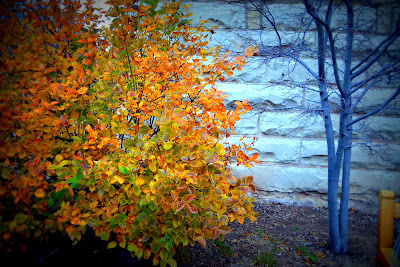Last weekend I caught up with a close friend. We had a lovely, meandering, heartfelt conversation. During part of this discussion, I reflected on my graduate-school days in Iowa City. It's interesting for me to look back at that period of my life. As with most experiences, it's layered and not straight-forward.
In the first year of my PhD program, I waffled between feeling like the biggest idiot in the world and feeling completely capable and talented. Some days I sobbed after class; other days I walked home with a huge smile on my face. These complicated feelings stayed with me even as I finished my dissertation. Part of me doubted my ability; the other part felt confident and strong. (Lucky for me, I had advisors who believed in me even when I didn't believe in myself.)
I also struggled in my relationship to food (very restrictive) and exercise (too much). Yet at the same time I played doubles volleyball twice a week, which was the most positive, enjoyable athletic experience of my life. I worked with therapists to understand and heal old, painful wounds. Through this process I found my own strength and beauty. I met Mark in my second year of graduate school. I learned what unconditional love really meant.
Here's how I summarized things to my friend: I wouldn't want to go back to that time, but it was really important for me to go through it.
My seven years in Iowa City were part of my life path. A path of learning and growing that will continue until I die. Today I trust in my gifts, believe in myself and my abilities, savor really tasty food, work out in a way that's comfortable for my body, honor and move past my emotional scars, let go more often, and open my heart regularly.
Struggle has been an important teacher in my life. It's uncomfortable in the moment, yet incredibly helpful in the end. Most importantly, I know I'm okay even in the struggle. I trust. I experience. In my early years, I deeply feared struggle (in a fear-of-death sort of way). But once I emerged from challenge after challenge, I began to relax. This is one of the many reasons why I LOVE getting older. Each year brings more experience, more perspective, more understanding, and more love.













